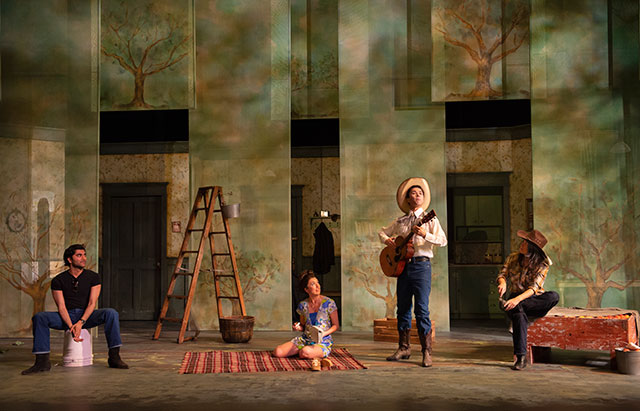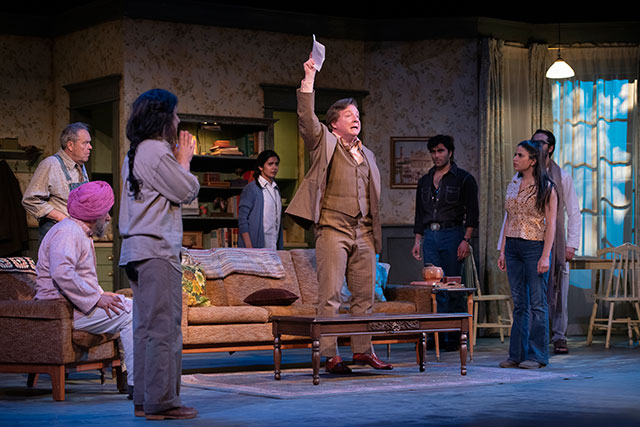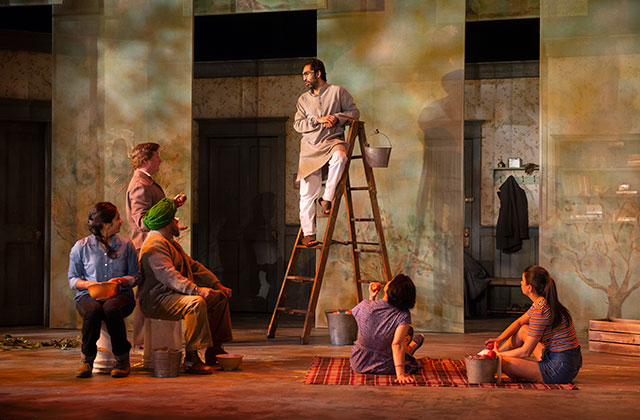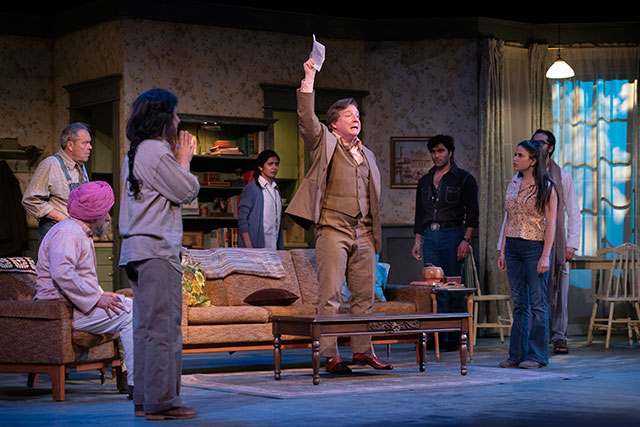The Cherry Orchard was Russian playwright Anton Chekhov’s last masterpiece. Drawing from her own childhood experiences, Sarena Parmar takes the blueprint of this classic and reworks it with distinctly Canadian elements, transporting time, place and people.
While Chekhov’s piece revolved around a time of Russian socio-economic change, Parmar’s is rooted in P.E. Trudeau’s 1970’s vision of multicultural change.
The play opens with everyone eagerly anticipating the return of Loveleen (Laara Sadiq), the matriarch of the Basran family, from a five-year sojourn in India following the death of her son. Her daughter Barminder, brother Gurjit and father Kesur have been struggling to keep the Okanagan family orchard afloat during her absence.
It is hoped that Loveleen’s previous competence at orchard maintenance can salvage their beloved property from the auction block. Unfortunately, she is not the woman she used to be and the family’s reliance on her is both misguided and fatal.
While in India, Loveleen squanders money on a lover who ultimately deserts her. An ensuing suicide attempt is thwarted by her younger daughter Annie who goes to retrieve her. She continues to make poor decisions, in fact, no decisions at all, tethered to her anti-depressants.
The Basrans are a Punjab-Sikh immigrant family who managed to carve out a life when their ancestors purchased the orchard. They cannot bear to let go of their family legacy even when a solution is offered, time and time again.
Michael, a wealthy businessman (and the son of a picker who worked on their orchard), suggests that they convert the property into an RV park for tourists. Coming from humble beginnings, Michael has a knack for finances and held Loveleen in awe when he was a small boy.
Throughout the play, the family continues to mock his idea until the fateful day of the auction, when Loveleen’s inaction leads to an unforeseen betrayal.
Unfamiliar with Chekhov’s original work, Parmar’s play was confusing to me. During the first half, there are so many characters that I wasn’t clear on their relation to one other and their individual background stories.
In addition to Loveleen’s plight, there are several subplots that tackle a multitude of themes. Tossed into the miasma, the fulfillment of love always remains out of reach for everyone.
Annie, given a strong and virtuous portrayal by Risha Nanda, adores idealist Peter (Nadeem Phillip) who philophisizes that they must return to India where their people are more welcome than in Canada.
Unlike Annie’s sister Barminder, he doesn’t want to assimilate. Adele Noronha plays her as a character full of fury, bitterness and resignation, clinging on for Michael’s proposal.
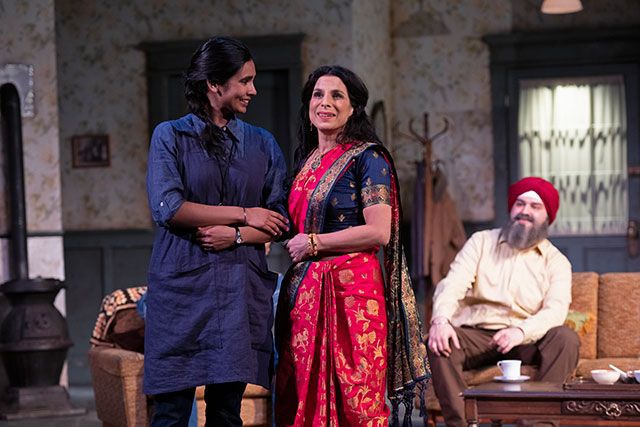
[Adele Noronha, Laara Sadiq, Munish Sharma]
Andrew Cownden depicts a very annoying Michael, however his character is not intended to be viewed as unlikeable and greedy. He feels gratitude towards the Basrans and genuinely tries to help. Instead, he comes off as awkward, gauche and lacks triumph at the end.
The desire to fit in is most pronounced in housemaid Donna, played by a fiery Yoshié Bancroft. Her outfits and hairstyle westernize her appearance so much that both my companion and I didn’t realize that her character was Japanese Canadian until the second half of the play!
Like Donna, Yebi, the infatuated but clumsy handyman-come-cowboy, are marred by memories of Japanese internment. A spirited and farcical performance by Kai Bradbury pumps humour into the bleak scenes.
Munish Sharma imparts a sincere and ardent portrayal as Loveleen’s rambling brother, who finally submits to assimilation after the orchard is sold.
Aboriginal cowgirl Charlie (Andrea Menard) and grandpa Kesur (Parm Soor) are stoic commentators in this chaos of intersecting lives, benefitting from their wisdom gleaned through time.
Parmar’s play is a myriad of themes – assimilation, white privilege, multiculturalism, loss of identity, Aboriginal rights – but, like its multitude of characters, none are afforded sufficient focus for a connection with the audience.
Without such emotional investment, the rough-hewn ideas are disappointing and hollow. Perhaps this is part of the playwright’s intent – the mosaic of Canada is much more complex than the dissolution of aristocracy.
The Orchard (after Chekhov) presents a home-grown, Canadian perspective to Chekhov’s tragic farce. Catch it at the Stanley Industrial Alliance Theatre through April 21.
Photos by David Cooper.
